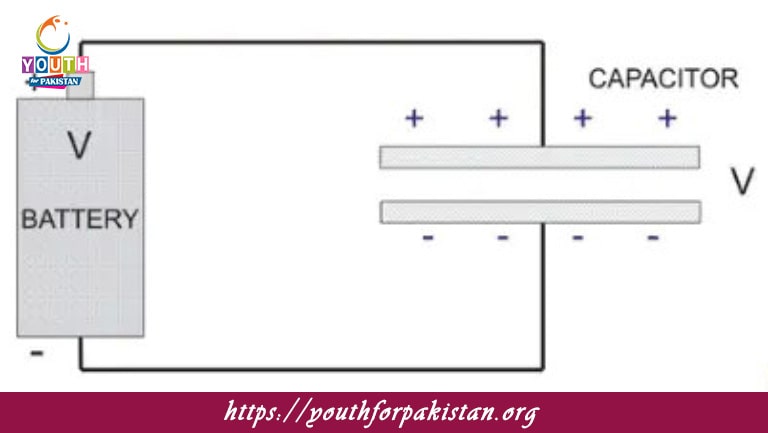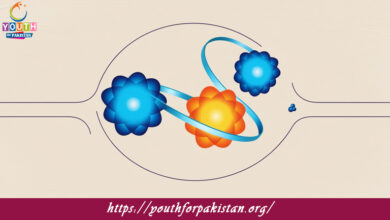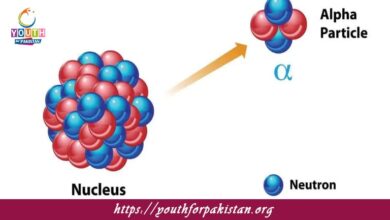Energy Stored In A Capacitor MDCAT MCQs with Answers

Welcome to the Energy Stored In A Capacitor MDCAT MCQs with Answers. In this post, we have shared Energy Stored In A Capacitor Multiple Choice Questions and Answers for PMC MDCAT 2024. Each question in MDCAT Physics offers a chance to enhance your knowledge regarding Energy Stored In A Capacitor MCQs in this MDCAT Online Test.
Energy Stored In A Capacitor MDCAT MCQs Test Preparations
If the voltage across a capacitor is doubled, the energy stored in the capacitor will:
A) Double
B) Quadruple
C) Halve
D) Remain the same
The unit of energy stored in a capacitor is:
A) Joule (J)
B) Coulomb (C)
C) Volt (V)
D) Farad (F)
The energy stored in a capacitor when connected to a 12V battery and having a capacitance of 5 μF is:
A) 0.36 mJ
B) 0.72 mJ
C) 0.60 mJ
D) 0.12 mJ
The energy stored in a capacitor is equal to the work done to:
A) Charge the capacitor
B) Discharge the capacitor
C) Maintain constant current
D) Increase the voltage across the capacitor
If the capacitance of a capacitor is halved while the voltage remains the same, the energy stored:
A) Doubles
B) Halves
C) Remains the same
D) Quadruples
The energy stored in a capacitor depends on:
A) The capacitance and the voltage
B) The resistance and the capacitance
C) The current and the capacitance
D) The resistance and the voltage
A capacitor is charged to 10V and has a capacitance of 2 μF. The energy stored is:
A) 0.01 mJ
B) 0.1 mJ
C) 0.2 mJ
D) 1.0 mJ
If the voltage across a capacitor is tripled, the energy stored:
A) Triples
B) Doubles
C) Increases by a factor of 9
D) Increases by a factor of 6
The energy stored in a capacitor is directly proportional to the:
A) Square of the voltage
B) Square of the capacitance
C) Product of the voltage and capacitance
D) Reciprocal of the voltage
When a charged capacitor is connected to a resistor, the energy stored in the capacitor is:
A) Dispersed as heat
B) Transferred to another capacitor
C) Converted into potential energy
D) Kept constant
The energy stored in a capacitor is dependent on:
A) Voltage
B) Capacitance
C) Both voltage and capacitance
D) Neither voltage nor capacitance
The energy stored in a capacitor of 3 μF with a voltage of 5V is:
A) 0.0375 mJ
B) 0.075 mJ
C) 0.075 J
D) 0.15 J
When a capacitor is charged to a voltage
V, the work done to charge it is:
A) Equal to the energy stored
B) Half of the energy stored
C) Twice the energy stored
D) Independent of the energy stored
To store the same amount of energy, a capacitor with twice the capacitance must be charged to:
A) Half the voltage
B) Twice the voltage
C) The same voltage
D) Four times the voltage
If the voltage across a capacitor is increased by a factor of 3, the energy stored in the capacitor will:
A) Increase by a factor of 3
B) Increase by a factor of 9
C) Increase by a factor of 6
D) Increase by a factor of 2
The energy stored in a capacitor is independent of:
A) Capacitance
B) Voltage
C) Charge
D) Resistance
The energy stored in a capacitor with a capacitance of 10 μF and a voltage of 20V is:
A) 2 mJ
B) 4 mJ
C) 5 mJ
D) 10 mJ
For a given capacitor, if the capacitance is doubled and the voltage remains the same, the energy stored will:
A) Double
B) Quadruple
C) Remain the same
D) Halve
The energy stored in a capacitor is proportional to:
A) The square of the voltage
B) The voltage
C) The square of the capacitance
D) The product of the voltage and capacitance
If a capacitor is charged to 6V and stores 0.36 mJ of energy, the capacitance is:
A) 0.01 μF
B) 0.02 μF
C) 0.03 μF
D) 0.04 μF
The energy stored in a capacitor increases with:
A) Increasing voltage
B) Increasing resistance
C) Decreasing capacitance
D) Decreasing voltage
The energy stored in a capacitor is:
A) The work done to charge it
B) The work done to discharge it
C) The energy dissipated as heat
D) The current passing through it
For a capacitor with a capacitance of 8 μF and a voltage of 15V, the energy stored is:
A) 0.9 mJ
B) 1.2 mJ
C) 1.8 mJ
D) 2.4 mJ
The energy stored in a capacitor with a capacitance of 1 μF and a voltage of 100V is:
A) 0.005 mJ
B) 0.05 mJ
C) 0.5 mJ
D) 5 mJ
If the energy stored in a capacitor is 0.5 mJ and the voltage is 10V, the capacitance is:
A) 0.01 μF
B) 0.1 μF
C) 1 μF
D) 10 μF
The energy stored in a capacitor of 4 μF and charged to 8V is:
A) 0.128 mJ
B) 0.256 mJ
C) 0.512 mJ
D) 1.024 mJ
The energy stored in a capacitor is inversely proportional to:
A) Capacitance
B) Voltage
C) Square of the voltage
D) Square of the capacitance
For a capacitor with a capacitance of 6 μF and a voltage of 5V, the energy stored is:
A) 0.075 mJ
B) 0.15 mJ
C) 0.3 mJ
D) 0.45 mJ
The energy stored in a capacitor increases if:
A) Capacitance is increased
B) Voltage is decreased
C) Resistance is increased
D) Capacitance is decreased
A capacitor with a capacitance of 12 μF and a voltage of 4V has an energy stored of:
A) 0.096 mJ
B) 0.192 mJ
C) 0.384 mJ
D) 0.768 mJ
If you are interested to enhance your knowledge regarding Physics, Chemistry, Computer, and Biology please click on the link of each category, you will be redirected to dedicated website for each category.





